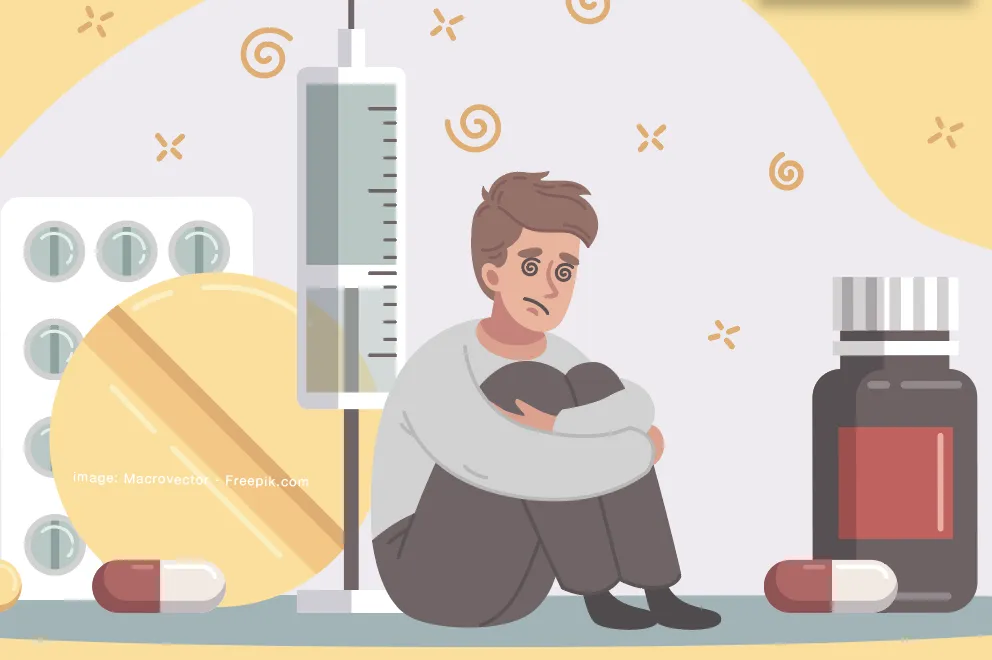
George Bernard Shaw once remarked that "England and America are two countries separated by a common language." That may be true in some ways, but increasingly our two countries are united by a new term – “deflection” – that dramatically retools how police and communities respond to drug use, drug offences, and related quality-of-life crimes.
Deflection – which emphasises treatment, social services, and recovery over arrest and prosecution, particularly around offences like drug possession/drug use – has grown rapidly in the United States over the past several years, largely in response to another phenomenon our two countries share: unprecedented rates of drug overdoses and drug-related deaths1. Like the US, the UK faces its highest-ever number of drug-related deaths, while drug use – and the lethality of drugs on the streets – continues to grow.
Deflection, by leveraging help-seeking and treatment, offers hope in many ways. First, it keeps people out of the criminal justice system and courts, freeing up the system (and police) to prevent and fight crimes against individuals and communities – a particularly useful outcome during the COVID-19 pandemic, when out-of-court resolution and community-driven solutions were necessarily more widely employed than ever before2.
In addition, destigmatising drug use is critical to advancing treatment. Deflection offers promise by diminishing the burden associated with drug possession/use. Further, because enforcement of drug crimes tends to fall heavier on minorities and marginalised populations, deflection can help reduce inequities – not only in terms of arrest but in helping increase help-seeking, harm reduction, and treatment among individuals and groups who often fall through the cracks or are less likely to enter or complete treatment3.
Finally, being arrested for drug possession or petty theft (a crime typically associated with drug use/addiction) can have a devastating effect on one’s life – affecting careers and income stability, family relations, and even the prospect of getting treatment. By emphasising early intervention and avoidance of the courts, deflection upends the traditional model, focusing on the “front end” of the system.
Deflection is among the diversion schemes already in place and ever-expanding in the UK, and is widely employed in the U.S. by hundreds of police agencies, public health departments, and the treatment, services, and recovery providers who collaborate with them4. Deflection has for several years been part of the U.S. national drug strategy5, and now is part of the UK’s drug strategy.
How deflection works
Most deflection cases are resolved in the community and relate to drug possession/use, allowing those in possession of small amounts of illegal drugs to follow an out-of-court treatment protocol, developed and administered locally, in lieu of incrimination or arrest. It is a trauma-informed, early intervention approach designed to address drug use and associated health/social factors built around the promise of recovery over prosecution. Often, police are minimally involved after the initial contact; mental health or drug treatment professionals connect with individuals to initiate a treatment plan.
This was the case in a highly successful scheme employed in the Thames Valley Police and Violence Reduction Unit6. When police found an individual in possession of a controlled substance, the first contact the individual received was from the drug service. It was done in the belief that each case was an opportunity to be addressed as a health-related encounter, not a police incident.
Initiatives like Thames Valley, the evidence shows, not only move individuals into treatment more quickly than waiting for courts7, they help reduce reoffence and harm – and cost far less (often a small fraction) than booking and adjudication. For example, “Checkpoint,” an initiative in the Darlington/Durham area, contributed to a drop in reoffending of more than ten percent overall and 30 percent when compared to individuals who went through the courts system8.
Deflection/diversion schemes have also proven successful in pilots tied to decriminalising sex work, another area tied to drug use, helping reduce violence against sex workers and contributing to many desisting from crime – including sex work9.
Deflection, though available to relative few UK police, has proven successful among stakeholders, including victims of crime, who can be content to see their cases disposed of out-of-court10. It is changing the landscape of response to drug offenses. In a world where the overwhelming share of police work is oriented not toward what we see on TV crime programmes but toward the social fabric of the community, compassionate, trauma-informed policing and response to the scourge of drugs are critical. Deflection/diversion schemes offer this promise.

Jon Ross, PhD, Director of Research & Evaluation, TASC's Center for Health & Justice in Chicago, USA
Further Reading
[1] United States Centers for Disease Control and Prevention. (2022). U.S. overdose deaths in 2021 increased half as much as in 2020 - but are still up 15%. https://www.cdc.gov/nchs/pressroom/nchs_press_releases/2022/202205.htm
[2] Shaw, D., Stott, J., Kirk, E., & Adams, D. (2022) The use of out-of-court disposals and diversion at the ‘front end’. Crest Advisory. https://www.crestadvisory.com/post/the-use-of-out-of-court-disposals-and-diversion-at-the-front-end
[3] Mennis, J., & Stahler, G. (2016). Racial and ethnic disparities in outpatient substance use disorder treatment episode completion for different substances. Journal of Substance Abuse Treatment, 63, 25-33. https://doi.org/10.1016/j.jsat.2015.12.007
[4] United States Department of Justice, Bureau of Justice Assistance, Comprehensive Opioid, Stimulant, and Substance Abuse Program; TASC’s Center for Health & Justice; & NORC at the University of Chicago. (2021). Report of the national survey to assess first responder deflection programs in response to the opioid crisis: Final report. https://www.cossapresources.org/Content/Documents/Articles/CHJ-TASC_Nation_Survey_Report.pdf
[5] White House Office of National Drug Control Policy. (n.d.). National Drug Control Strategy. https://www.whitehouse.gov/ondcp/national-drug-control-strategy/
[6] Justice Innovation.org (n.d.). Thames Valley Drug Diversion Scheme. https://justiceinnovation.org/project/thames-valley-drug-diversion-scheme
[7] Shaw, D., Stott, J., Kirk, E., & Adams, D. (2022) The use of out-of-court disposals and diversion at the ‘front end’. Crest
Advisory. https://www.crestadvisory.com/post/the-use-of-out-of-court-disposals-and-diversion-at-the-front-end
[8] Weir, K., Kilili, S., Cooper, J., Crowe, A., & Routledge, G. (2022). Checkpoint: an innovative Programme to navigate people away from the cycle of reoffending–a randomised control trial evaluation. The Police Journal, 95(3), 562-589; https://justiceinnovation.org/project/checkpoint
[9] Balderston, S. (2019) Advocacy & social policy impact research evaluation: The Nelson Trust Sex Worker Outreach Project (SWOP): Final Report 2015 – 2018. Lancaster: Lancaster University.
[10] Shaw, D., Stott, J., Kirk, E., & Adams, D. (2022) The use of out-of-court disposals and diversion at the ‘front end’. Crest Advisory. https://www.crestadvisory.com/post/the-use-of-out-of-court-disposals-and-diversion-at-the-front-end